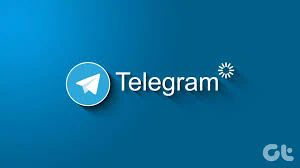# What is Telegram?
## Introduction to Telegram
Telegram is a cloud-based instant messaging platform that has gained significant popularity across the globe since its launch in 2013. Founded by Pavel Durov, Telegram offers functionalities similar to other messaging apps, such as WhatsApp and Signal, but stands out due to its unique features, user privacy, and emphasis on security. This article aims to provide a comprehensive overview of what Telegram is, its functionalities, unique features, security measures, and its growing influence in the world of communication.
## The Fundamentals of Telegram
At its core, Telegram allows users to send messages, photos, videos, and files of any type. The platform also supports voice calls and allows users to create groups of up to 200,000 members or channels that can broadcast messages to an unlimited audience. This versatility makes Telegram an appealing choice for various users—from individuals seeking personal communication to organizations looking for effective ways to reach their audience.

Telegram operates on multiple platforms, including iOS, Android, Windows, Mac OS, and Linux. Its cloud-based infrastructure enables seamless access and synchronization of messages across different devices. This means that a message sent from a mobile device can be viewed on a desktop computer and vice versa, enhancing accessibility and usability for its users.
## Unique Features of Telegram
Telegram offers a myriad of features that differentiate it from other messaging applications. One of its standout features is **Secret Chats**. Unlike regular chats, Secret Chats utilize end-to-end encryption, ensuring that messages can only be read by the intended recipient. This feature also includes self-destruct options, allowing users to set a timer for messages to disappear after being read. This commitment to privacy makes Telegram particularly appealing to users concerned about data security.
Another unique feature is **Bots**. Telegram Bots are automated applications that perform specific tasks, such as providing user support, delivering news updates, or even managing to-do lists. Developers can create custom bots using the Telegram Bot API, fostering a vibrant ecosystem of interactions on the platform. This functionality adds an additional layer of engagement for users and brands alike, as they can automate several aspects of communication.
Furthermore, Telegram supports **Channels** for broadcasting to large audiences, allowing users to share messages, news, and updates without the need for reciprocal communication. This feature is extensively used by brands, influencers, and organizations to reach their followers effectively.
## Security and Privacy on Telegram
Telegram is known for its strong stance on security and privacy. Unlike many other messaging apps, Telegram does not share user data with advertisers. The company emphasizes that its revenue model is built around user donations and the premium features it offers rather than selling user information.
The platform utilizes a combination of encryption methods to safeguard user data. While regular chats are encrypted on the transport layer to protect from interception, Secret Chats leverage end-to-end encryption. This means that only the sender and the recipient have the keys to decrypt the messages, making it nearly impossible for anyone else—apart from the chatting parties—to access the content.
Users can also enable two-factor authentication, adding an extra layer of security to their accounts. This feature requires a second form of verification in addition to the password, making unauthorized access significantly more difficult.
## The Role of Telegram in Communication
As the digital landscape continues to evolve, Telegram has carved out a niche as a versatile communication tool. Its ability to host large groups and facilitate channels allows for a wide range of applications—from social networking to professional communication.
Many organizations leverage Telegram for internal communications and announcements. The ability to create large groups and channels enables them to disseminate important information swiftly. This feature has become even more critical during global events like the COVID-19 pandemic, where quick information sharing became vital.
Furthermore, Telegram serves as a platform for communities and support groups to come together. Whether it’s hobbyist groups, fan clubs, or activist organizations, Telegram’s features encourage connectivity and engagement among like-minded individuals. This has made Telegram an integral part of many online communities across various interests.
## Telegram’s Popularity and Growth
Since its inception, Telegram has witnessed substantial growth in user numbers. As of 2023, the platform boasts over 700 million active users, steadily increasing each year. This growth can be attributed to several factors, including its focus on privacy, security, and user-friendly features.
The platform has particularly gained traction in regions where censorship and government control over social media are prevalent. Telegram’s ability to circumvent such restrictions has made it a preferred choice for activists and individuals seeking free expression. Countries experiencing political unrest have seen surges in Telegram users as people look for secure communication channels.
Moreover, the emergence of various tools and integrations available on Telegram, such as payment systems and community engagement apps, has fostered its growth. Organizations and brands looking to engage users have recognized the platform’s potential, often utilizing it to build loyalty and foster closer relationships with customers.
## Challenges and Controversies
Despite its many advantages, Telegram has not been without challenges and controversies. One significant issue relates to its use by extremist groups and for illegal activities, given the platform’s commitment to privacy. Telegram has faced criticism for allegedly harboring radical content and facilitating the spread of misinformation.
To combat this, Telegram has implemented measures to monitor and restrict harmful content. The platform employs both automated systems and human moderators to ensure compliance with community guidelines and legal laws. However, striking a balance between privacy for users and the need to curb illegal activities remains a complex challenge for the company.
Additionally, while Telegram is respected for its security features, it has faced scrutiny for its lack of end-to-end encryption for regular chats. Critics argue that this makes private conversations vulnerable to interception despite the other protective measures in place.

## Comparing Telegram with Other Messaging Applications
In a landscape filled with various messaging applications, it’s essential to understand how Telegram compares to competitors such as WhatsApp, Signal, and Facebook Messenger. Each platform has distinct features, strengths, and weaknesses, appealing to different user populations.
WhatsApp is widely recognized for its user-friendly interface and robust user base, boasting over 2 billion users. However, concerns over its parent company, Facebook, and the sharing of data have led many users to seek alternatives. Telegram, with its strong emphasis on privacy and unique features like bots and channels, has emerged as a viable option for privacy-conscious users.
Signal, another privacy-focused messaging app, offers end-to-end encryption for all communications by default. While it has gained popularity among security advocates, its smaller user base compared to Telegram and WhatsApp may deter some users from making the switch.
Facebook Messenger is also a widely used platform but has faced scrutiny for its data collection practices. Telegram’s commitment to user privacy and minimal advertising makes it an appealing alternative for those wary of Facebook’s policies.
## The Future of Telegram
As digital communication continues to evolve, Telegram appears well-positioned to adapt to emerging trends. The platform consistently rolls out new features to improve user experience and engagement, from enhancing group functionalities to exploring innovations in security measures.
Moreover, with increasing global awareness surrounding data privacy and security, Telegram may gain more users seeking secure alternatives to traditional messaging applications. The ongoing geopolitical situations and unrest in various regions may further boost Telegram’s user base, reinforcing its role as a platform of choice for secure communication.
As industries evolve and embrace digital transformation, businesses may increasingly turn to Telegram for customer engagement, support, and community building. The platform’s unique qualities and robust features present opportunities for organizations looking to enhance their communication strategies.
## Conclusion
In conclusion, Telegram is much more than a messaging app; it is a multifaceted platform that prioritizes privacy, security, and user engagement. By offering unique features such as Secret Chats, Bots, and Channels, Telegram has carved out a significant place in the social media landscape.
Its growth trajectory reflects a growing need for secure, privacy-oriented communication tools. As it continues to evolve, Telegram is poised to influence the future of digital communication, addressing both user needs and societal challenges while maintaining a strong commitment to user privacy and data security. As we further integrate technology into our daily lives, platforms like Telegram remain critical in navigating the complexities of modern communication.
With millions of users around the globe, Telegram has established itself not only as a go-to messaging service but also as a vital tool for communities, organizations, and individuals seeking secure and effective methods of communication.
